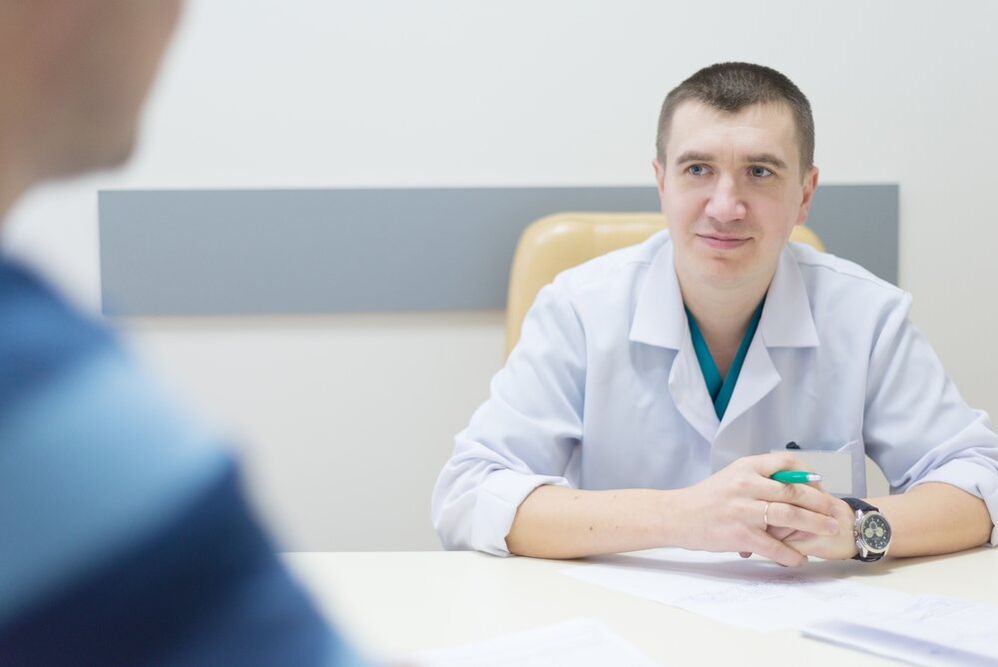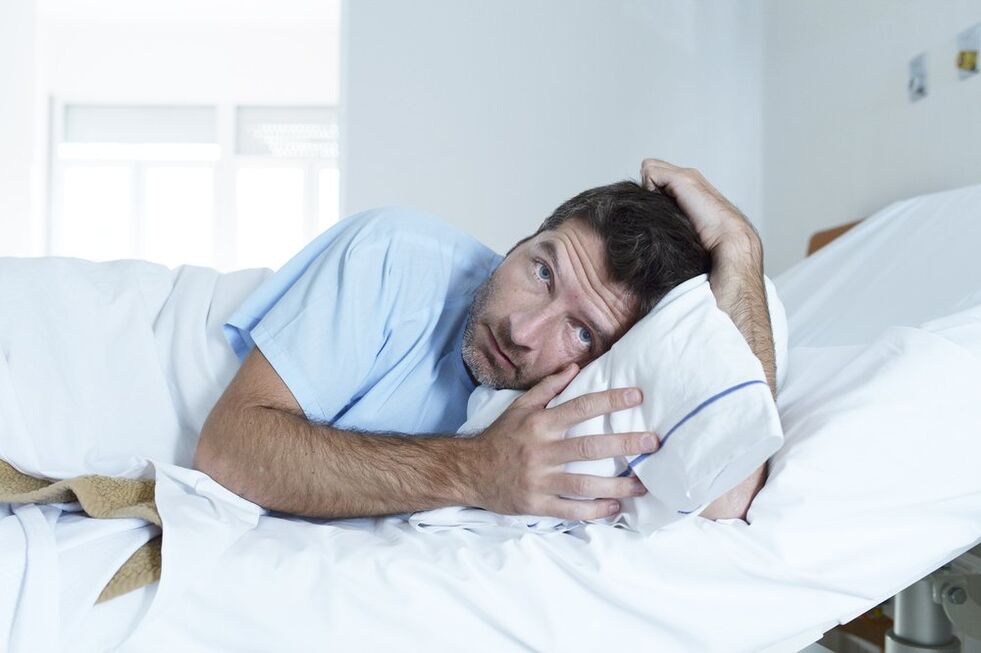Prostatitis is an insidious and complex male disease, which is quite difficult to diagnose in the initial stages.It is an inflammation process that develops in the prostate area and is accompanied by pain, problems with urination and the appearance of problems with men's health.
Prostatitis - what is it?

Prostatitis is an inflammation of the prostate, that is, the prostate gland located between the bladder and the male reproductive organ and surrounding the urethra, called the urethra.The latter receives a substance through the channels from the prostate that promotes the normal functioning of the sperm.The prostate gland is covered by a membrane, the base of which is connective tissue.The prostate's network of blood vessels provides blood supply to the pelvic organs, and muscles within the gland itself help to hold urine and release the gland's secretions along with sperm during ejaculation.
The full development of the male prostate ends at the age of seventeen, and after sixty years, all the functions of the prostate gland decrease, as a result of which its components are replaced by connective tissue.Such changes affect a man's health, causing general unhappiness and low tone.However, such pathologies can appear at an earlier age.The most common cause of this is chronic prostatitis, which is an indolent process of inflammation of the prostate.
In addition to chronic, there is another form of the disease - acute.In acute prostatitis, the infection enters through the excretory ducts of the gland.
Symptoms of acute and chronic prostatitis

The most common causes of prostatitis are:
- various types of infections that come from the urethra, testicles, as well as their appendages, bladder or other inflamed organs.
- insufficient physical activity;
- weak immunity;
- the presence of chronic inflammatory processes;
- promiscuity;
- cases of hypothermia;
- damage to the urinary tract;
- stool disorders;
- problems with blood circulation in the pelvic organs;
- hormonal imbalances;
- poor nutrition.
Chronic prostatitis can be diagnosed by the following symptoms:
- problems with sexual function - the appearance of pain in the urethra, as well as in the rectum during ejaculation, weakening of the erection, cases of premature ejaculation, lack of orgasm;
- disturbances in the activity of the urinary system - pain during urination, frequent urge to urinate, painful sensations in the lower abdomen, a feeling of incomplete emptying;
- irritation and anxiety caused by increased attention to the state of one's health.
The acute form of prostatitis is characterized by high body temperature.The process of urination is difficult and accompanied by pain.Swelling develops in the prostate area, which can cause urinary retention.
Chronic prostatitis goes more smoothly, but the possibility of its irritation can never be excluded.
In addition, improper treatment of prostatitis or its absence can lead to undesirable consequences, for example:
- severe pathologies of the bladder that require surgical intervention;
- the development of infertility;
- progressive cystitis;
- the development of pyelonephritis, as well as other kidney pathologies;
- purulent inflammation requiring surgical treatment;
- narrowing of the urethra.
Treatment of prostatitis: medications used

In the case of an acute form of the disease, immediate admission of the patient to the urology department is required.When this is not possible, the treatment of prostatitis takes place in the surgical department.
The general method of treating prostatitis in the acute phase includes measures such as:
- Antibacterial therapy.
- Mandatory bed rest.
- Treatment of prostatitis with drugs that ensure normal blood circulation.This approach helps improve the flow of lymph, as well as venous blood from the inflamed gland, and helps remove waste products from the body.
- Use of sedatives.
- It is possible to use other analgesics.In addition to the fact that these drugs relieve pain, they help to reduce the inflammatory process to some extent.Sometimes the doctor prescribes rectal suppositories that contain the same substances as the pills.They increase the therapeutic effect due to local effects.
- If prostatitis is accompanied by severe intoxication, detoxifying agents are prescribed.
The need for surgical treatment appears in the case of complete inability to urinate independently, or in the case of a prostate abscess.
Treatment of chronic prostatitis should be comprehensive.The main methods of therapy are:
- Taking non-steroidal anti-inflammatory drugs.
- Taking medications that promote better lymphatic drainage and improve blood supply to the pelvic organs.
- Taking immunomodulating drugs.At the same time, the doctor may suggest treatment with a drug that helps relieve swelling in the prostate area, improves blood microcirculation and also reduces the possibility of blood clots.
- To restore an erection, in some cases, antidepressants and sedatives are prescribed.
- Systematic physical exercise will help normalize the blood supply and strengthen the pelvic muscles.It is best if the set of exercises is compiled by a specialist in therapeutic exercises.
- An effective way to treat chronic prostatitis is rectal massage.Its main purpose is to normalize blood supply, accelerate metabolic processes and eliminate congestion.But, unfortunately, such a technique sometimes causes not only physical, but also psychological discomfort among the representatives of the stronger sex.For this reason, they deliberately postpone the visit to the doctor, which worsens the situation.
Prevention of the development of prostatitis
Everyone knows that any disease, including prostatitis, is easier to prevent than to treat.To prevent this unpleasant disease, the following preventive measures should be observed:
- Prevention of hypothermia.
- Maintaining a soft diet - limiting the consumption of alcoholic beverages, fried and canned foods.
- The prevention of prostatitis can also be called the regularity of sexual relations, because one of the reasons for its occurrence is sperm stagnation, as well as frequent erections without subsequent ejaculation.
- Prevention of sexually transmitted diseases is also important.
- Periodic visits to the doctor: An adult male should visit a specialist every year for a medical examination.
After treatment of prostatitis, maintenance courses of outpatient therapy are recommended every six months and a course of treatment once in a sanatorium.























